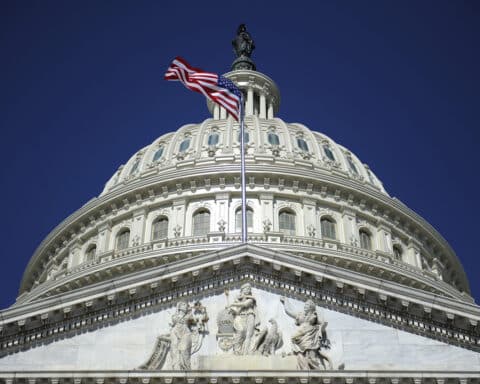In a case that has captured national attention, the story of A.C. Cox, a young male who identifies as a woman, has become a focal point in the ongoing debate over parental rights and the rights of transgender youth.
In 2019, when their son informed them that he now wanted to be identified as female, Jeremy and Mary Cox, Catholic parents in Anderson, Indiana, declined.
In 2021, Indiana officials opened an investigation into the Cox family based on the unwillingness of the parents to accept their son’s professed gender identity. As a result of that investigation, the Coxes’ then-16-year-old son was removed from the care of his parents and placed in a living situation that “affirmed” his transgender identity.
At the core of this dispute is the Coxes’ belief in the importance of raising children according to their biological sex and the conviction that to do otherwise would be contrary to their religious and moral principles. The case of the Cox family serves as a warning to all who cherish the sanctity of family and the primacy of parental rights in the upbringing of children. “If this can happen in Indiana, it can happen anywhere,” Lori Windham, vice president and senior counsel at Becket, a public-interest law firm in Washington, told OSV News.
A shifting stance toward parents
Historically, the narrative surrounding transgender youth and their families emphasized the role of parents in advocating for and supporting the needs of children. In the early coverage of cases involving transgender individuals, such as Chastity Bono and others, the prevailing sentiment was that parents, armed with unconditional love and an intimate understanding of their child’s experiences, know best. Those parents pressured public and educational spaces to establish policies that conformed to the perceived needs of their children.
The Church teaches that parents have the primary responsibility for educating their children, which includes helping them to grow into the men or women God intends them to become.
However, as the social and cultural landscape has evolved, so has the discourse around transgender youth and their rights. A notable shift has occurred in which the authority and knowledge of parents in making decisions about a child’s gender identity are increasingly being questioned and, in some cases, overridden by schools, medical professionals and state agencies.
In January, one New Jersey father found himself in a legal battle with Delaware Valley High School. According to the aggrieved father, the school had begun to socially transition his daughter, who had begun to identify as male, without informing him. Not only were these steps taken without the father’s consent, but in this case, the school is alleged to have actively concealed the child’s gender transition. Schools now feel empowered to override parental rights based on subjective interpretations of law and policy.
Such policies, which favor the child’s purported rights against parents’ rights, have been building for years. A 2013 directive for Massachusetts schools assigns a critical responsibility to school staff to champion the welfare of transgender and gender nonconforming students and to foster a school environment that embraces them. In Massachusetts, parents who do not support their child’s gender exploration may find themselves sidelined and their role taken over by school personnel who are deemed more affirming.
Standing together on sexual identity
The Church teaches that parents have the primary responsibility for educating their children, which includes helping them to grow into the men or women God intends them to become. That divine intent is reflected in their biological sex. Female children should be taught to grow into good women, and male children should be taught to grow into good men. Often this will mean opposing distorted images of masculinity and femininity in the surrounding culture.
The civil authorities, for their part, are bound, as the Catechism of the Catholic Church puts it, to give expression to “a just hierarchy of values in order to facilitate the exercise of freedom and responsibility by all” (No. 2236). Two points in this hierarchy are increasingly at issue: the rights and responsibilities of parents and the good of their children in the area of sexual identity. Parents should foster the proper growth of their children, and that includes helping them come to terms with their biological, divinely given identity as a man or woman. If there is pain and confusion in this area, parents have a right and a duty to gently, effectively and lovingly help children move in the right direction.
It seems highly unlikely that civil authorities will help parents fulfill their responsibilities to their children in this area any time soon. As Catholics, we need to be adamant that states must not hinder parents from doing so. When we hear of parents struggling against a misguided culture to help their children integrate their God-given, biological sex into their identity, we need to support them. This means supporting those lawmakers and lawyers who adhere to the natural law in this area and standing by the Church’s teaching in the public square as our station in life requires and permits. It also, perhaps more immediately, means creating environments where parents can support one another and frankly acknowledge and work to counter forces that distort the confidence our children should have in their sexual identity.





